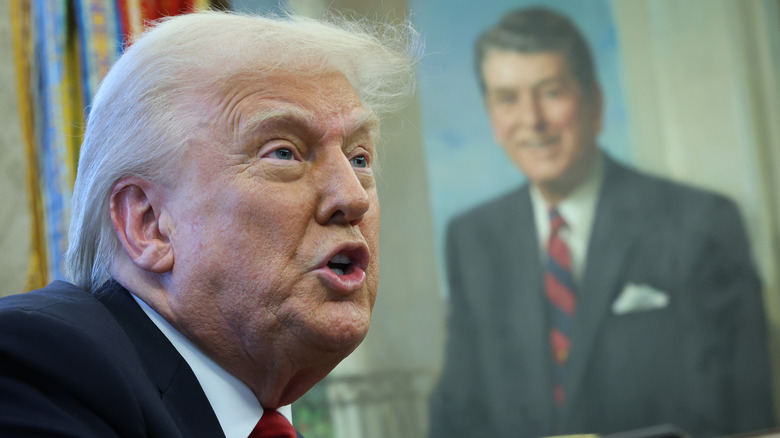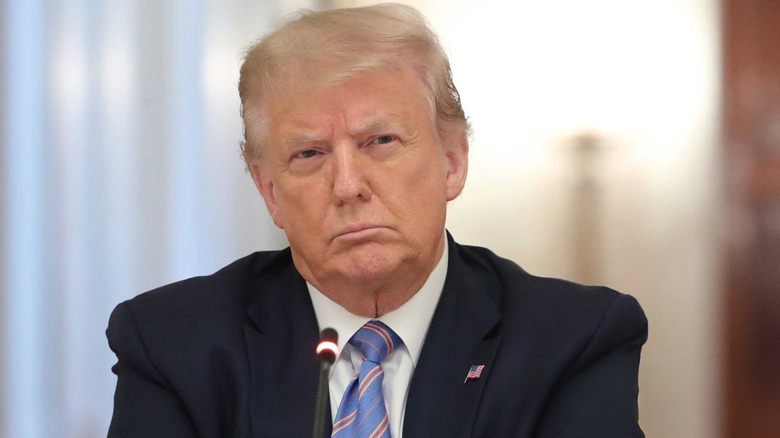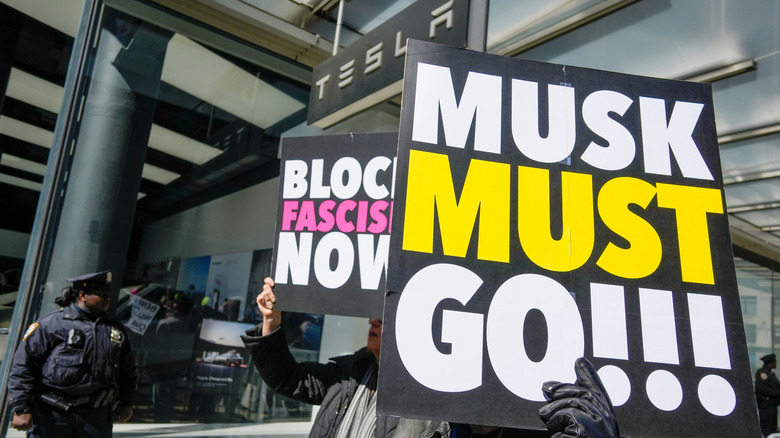Donald Trump Made His Opinion On Car Prices Clear And You Won't Like It At All
President Donald Trump has gone all in on tariffs, seemingly at all costs. The self-proclaimed "tariff man" clearly sees tariffs as a multi-tool power, able to accomplish everything from stemming the immigration and illicit drug trade to raising billions in tax revenues to boosting domestic manufacturing jobs, all while establishing the U.S. as a self-reliant industrial base. While these goals might be noble in theory, in practice, the U.S. is part of a much larger interdependent global system — a system that does not benefit from Trump's whims. Not only does Trump's punishing tariff talk keep tanking the stock market, but the administration's continued push for bigger, harsher tariffs has led to retaliatory tariffs from other countries and escalating trade war tensions. Not to mention the looming burden these tariffs will place on American budgets and how these tariffs will ultimately impact the job market.
While an already economically weary populace feeling pressured by inflation, income inequality, and ongoing issues with wage stagnation likely can't handle much more financial strain — Trump disagrees. Instead, Trump — who Forbes reports has a net worth of $5.1 billion in 2025 – has only admitted that his tariffs might cause "a little pain" for American consumers. He argued consumers will ultimately understand paying higher short-term personal prices for long-term domestic gains. However, when Trump was pressed, during a late-March NBC News interview, about how his new tariffs on certain auto parts and vehicles will raise prices for many Americans, Trump's message was clear when he told them he "couldn't care less."
Why Trump couldn't care less
In the previously mentioned March 29, 2025 NBC News phone interview with Kristen Welker, President Trump insisted that his 25% tariffs on imported automobiles and parts were "absolutely permanent." Welker then asked about reports that Trump warned automaker CEOs not to raise automobile prices in response to tariffs. Trump proceeded to tell Welker "No, I never said that," before adding, "I couldn't care less if they raise prices, because people are going to start buying American-made cars."
Trump further denied making any price warnings to automakers, instead adding, "The message is congratulations, if you make your car in the United States, you're going to make a lot of money. If you don't, you're going to have to probably come to the United States, because if you make your car in the United States, there is no tariff." He added, "I hope they raise their prices, because if they do, people are gonna buy American-made cars. We have plenty." While this might sound good on its surface, the reality could leave U.S. automakers and consumers strongly disagreeing.
How tariffs will affect the car market
Trump may have a glowing automotive future in mind, but in the present, Trump has made it a bad time to buy a car. Plus, his policies are only going to make things worse. In the short term, his tariffs stand to raise car prices by thousands of dollars per vehicle, while potentially causing automotive assembly lines to go down. Plus, it would take years to shift auto production entirely to U.S. soil in order to meet the automotive import industry. Such a shift would leave American consumers paying sharply increased automotive prices on shrinking amounts of cars, all while suffering under unfavorably high automotive loan terms. Not to mention, auto assembly workers and used car dealers could also lose their jobs and businesses.
It also can't be ignored that Tesla, the electric vehicle company led by DOGE hatchet-man Elon Musk, is largely shielded from Trump's tariffs. Tesla can count itself as the most American-made automobile in terms of parts and labor, as well as the only car President Trump has personally assured he will purchase while on the White House lawn. Trump may publicly not care about the American consumer's tariff-caused pain, but judging by the growing protests at Tesla showrooms, rapidly declining market cap, and key investors dumping Tesla stock, those same consumers absolutely care about Musk's favorable treatment at the expense of the American people.


